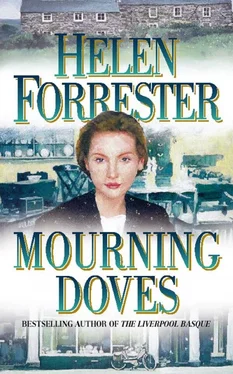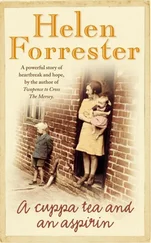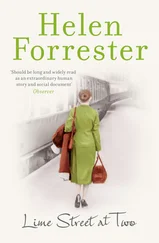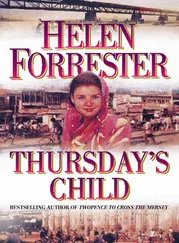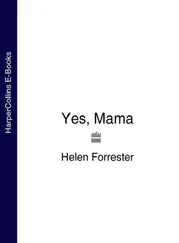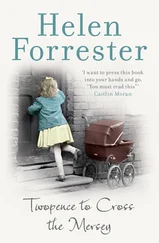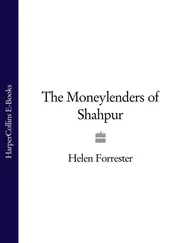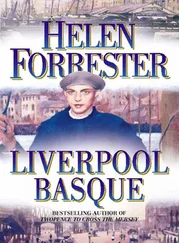After a few minutes, she roused herself sufficiently to take off her gloves and allow the heat to warm her hands. While Mr Fairbanks bustled into the kitchen to fill the kettle, Celia whispered to her, ‘When do you think Paul and Edna will dock?’
Before replying, Louise waited for Mr Fairbanks to push between them to place the kettle on the hob, and turn it over the fire. It soon began to sing, and Mr Fairbanks said cheerfully, ‘It won’t be long, Ma’am.’
Louise acknowledged his remark with a condescending nod, and then, as he vanished in search of milk and sugar, replied to Celia, ‘I really don’t know. Albert thought it would be within two weeks. He thought it very likely that they had sailed a day or two before … before …’ Her lower lip began to tremble.
Celia’s voice was very gentle, as she suggested, ‘So that it is possible that they will not receive his letter – or your letter to Edna?’
‘Yes, dear.’
‘That’s what he said to me. In any case, once they get word in Southampton, I am sure they will take the first train up here.’
‘Yes, dear.’
It was Celia’s turn to sigh. ‘I wish they were here. Paul would know what to do about everything.’ She felt like adding, ‘And he would know how to deal with Cousin Albert, so that at least we would know more exactly what our financial situation really is.’ She restrained herself, however, because she could see that her mother was crying silently to herself.
Louise’s tears had not gone unnoticed by Mr Fairbanks. It was clear that Albert had told him the reason for Louise’s coming to the cottage, because he said soothingly to her, as he rescued the puffing kettle and took it over to the table to fill the large earthenware teapot, ‘Don’t grieve, Ma’am. A good cup of tea’ll set you up.’
He stirred the pot briskly, put an ancient knitted tea cosy over it, and asked, ‘How much sugar, Ma’am?’
‘Two, please.’
‘And you, Miss Celia?’
‘The same, please.’ Really, he was being immensely kind, Celia thought, just like a grandfather would be. Both sets of her grandparents had died when she was small, and she had little recollection of them, except of veined wrinkled hands producing bonbons and popping them into her mouth, and being hugged and kissed. Her mother might not be getting much comfort from their encounter with Mr Fairbanks, but she herself was.
Before giving them their tea, Mr Fairbanks went back to his corner cupboard and produced a largish bottle.
‘Would you be liking a drop of rum in your tea, Ma’am? It might help you a bit, like …’
Louise glanced up at him. For a moment she was shocked out of her misery. ‘Oh, no, thank you. I couldn’t possibly!’ A gentlewoman drinking rum like a common sailor’s wife? Brandy, perhaps, but not rum!
Celia, however, saw the sense of his suggestion, and she said, ‘Have a tiny bit, Mother. It would give you strength. And we have yet to get to Birkenhead, to see Mr Billings – and then go home – it will take all your strength.’
Louise faltered. The remaining part of the afternoon stretched before her like a long staircase hard to climb, and she was so tired, so dreadfully tired.
Mr Fairbanks smiled at her encouragingly, ‘It won’t do you no harm, Ma’am.’
She was persuaded, and she did cheer up, though she drank her two cups of tea with her nose wrinkling up in distaste at the odour of the rum.
Eddie Fairbanks did not offer rum to Celia. As a single lady she shouldn’t be drinking anything but wine, and he didn’t have anything like that in the house.
Warmed and comforted and a little drunk, Louise relaxed enough to ask the old man if he knew what had happened to her childhood playmates, the Lytham family, who used to live in his house.
He did not know where the family was, he said. He knew only that the leasehold of both cottages had run out, and that the Lythams had not renewed theirs, but that Celia’s grandfather had come to an agreement with the earl to renew his for another hundred years. ‘Because the houses are very well built, and your granddad probably wanted to keep his in the family for holidays.’
It was obvious from Louise’s expression that she had no idea what was meant by leasehold, so Celia asked, ‘What exactly does that mean? I’ve always wondered.’
Mr Fairbanks picked up his cup of tea, and took a sip. ‘Well, you see, luv, nobody round these parts owns much land. Nearly all of it has belonged to the earl since time began. If you want to build on land round here – or farm it – you can persuade the earl to give you a long lease on it – these cottages had one for fifty years – and then you can build on it. However, at the end of the lease, you have to pay the earl to renew it; otherwise the land – and the buildings that you have built on it – revert to him, and he can rent them to somebody or pull them down.’ He put his cup down neatly in its saucer, and then added, ‘And what’s more, you’ll probably find that Mr Billings ‘as been paying a ground rent to his lordship’s agent each year on your behalf.’
Louise asked, ‘Can we sell the cottage, if we want to?’
‘Oh, yes, Ma’am, if someone is prepared to buy the lease from you. But you’d have difficulty getting a good price for it – they’re a bit isolated – it’s a fair walk to Meols railway station, and your cottage has bin proper neglected, if I may say so. And in winter the wind comes in from the sea something awful. The gentleman that came to look at it brought Mr Parry, the estate agent from Hoylake, along with him – and that’s what he said. Neither house is worth a great deal.’
Louise felt a little comforted. At least Albert had considered selling the cottage, before he had condemned her to it.
For her part, Celia swallowed hard. Pay an earl for the right to live in a house that belonged to you, but you probably could not sell? What other money problems that they knew nothing about lurked amid the present turmoil of their lives? What other financial demands could they expect? She felt faint with fear, unreasonable fear that Cousin Albert might have deserted them, leaving them penniless. He had made it clear that the price of their Liverpool home would be used as the foundation of their income, and certainly not to buy another house. Once he had sold it for them, would he be honest and hand over the money? Celia felt sick with apprehension.
Her mother must have had similar vague fears, because she said rather desperately to her daughter, ‘Perhaps we should go to see Mr Billings now, Celia.’ She rose carefully, to hand her cup to their host, and thank him quite sweetly for his hospitality. He was a mere working man – but he was male and he knew things that she did not. Like Celia, Louise began to view him as a possible pillar of support, like a good butler would have been, had she been fortunate enough to have one in her employ, instead of a giggling fool of a parlourmaid.
Eddie Fairbanks insisted on walking with the ladies down the sandy lane to Meols Station, and waiting with them until the steam train chugged in. He recommended that, instead of changing to the electric train at Birkenhead Park Station, they should get a cab from that station to Mr Billings’ office. ‘Being as it’s getting late, and his office is nearer to Park than it is to Birkenhead Central.’
They took his advice, and were fortunate in catching small, rotund Mr Billings just as he was putting on his overcoat ready to go home.
As the ladies were ushered in, after being announced by his fourteen-year-old office boy, he resignedly took off his bowler hat again and hung it on the coat stand, then went to sit at his desk. As the women entered, he half rose in his chair and smiled politely at them.
Читать дальше
